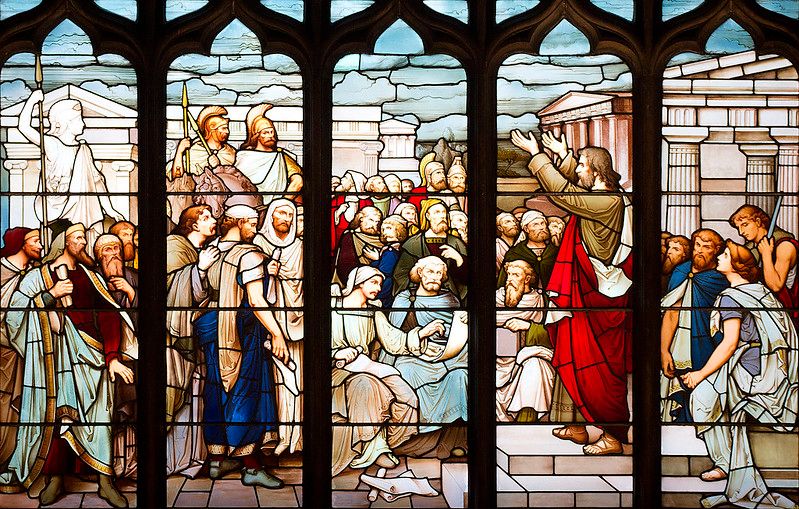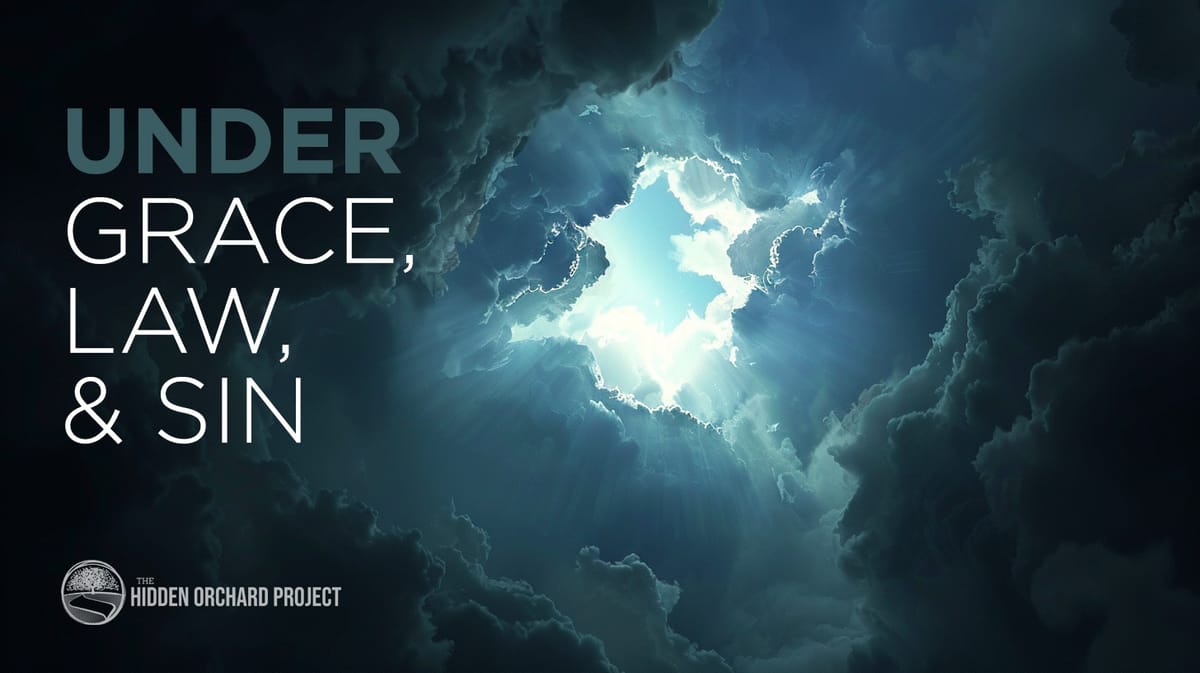Rethinking Paul - Program
We have organized the following articles to serve as a program for learning. As new articles are added, this page will be updated. for now, the following articles will help to build a new understanding of the writings of Paul's context, his audience(s), and the situation he was sent to resolve.

The following articles have been organized in a sequence that will aid in learning and help to build a more nuanced understanding of the writings of Paul, his context, his audience(s), and the complexity of the situation he was sent to resolve.
This page will be updated as new articles are added, so check back occasionally. Enjoy!
👍 Some articles may require Free Membership or Full Access. Subscribe today!
Rethinking Paul - Program
Part 1 - Foundation
PaRDeS - Jewish Hermeneutics
If you have been around the world of Jewish thought for a while, you might likely already be familiar with the concept represented by the acronym, PaRDeS.

Pharisees
As a child growing up in the church, admittedly, I had acquired a negative view of the Pharisees. The dark villains of many Sunday school stories and their combative portrayal in the Gospel readings, it seemed the word ‘Pharisee’ was an acceptable form of a curse word. However, I recall

Was Paul the First Christian Convert?
Is this a trick question? Of course, Paul converted, right? The chapter heading says so, and his name was changed to Saul, wasn’t it?
For those familiar with the complexities of sectarian first-century Judaism, this assumption begins to face some difficulties.

Paul’s Audience(s) in the New Testament
When reading the New Testament, it is very easy - especially if you learned through a denomination of mainstream western Christianity - to assume Paul’s audiences are a homogenous body of “Christians”.

Part 2 - Context
Who Were the Judaizers?
Despite its ubiquitous usage in the church, the word “Judaizer” is only found once in the New Testament, in Galatians 2:14. In its broadest sense, a “Judaizer” is a pejorative label given to someone who influences others to observe some form of Jewish religious lifestyle.

The Roots of Gentile Inclusion: Noahide Laws and the Jerusalem Council
In this article, we explore the Noahide laws. In addition, we’ll take a unique look at these laws, their relevance to the Jerusalem Council of Acts 15, and their implications for Gentiles today.

The Missing Context of the New Testament - pt. 1
One of the most important components to understanding the “New Testament” is found amid an incident that most Bible readers have never heard of. We’ll learn how a particular disagreement between predominant Pharisaic schools shaped the contours and the perplexing milieu of first-century Judaism.

The Missing Context of the New Testament - pt. 2
As part of the greater Jewish community, the Apostolic leaders struggled with these particular issues more acutely. The sudden influx of Gentiles leaving paganism to join the diasporic Jewish communities made this a primary issue for them…

Is the Oral Torah “Biblical”? pt. 1
One of the biggest hurdles for western Christians to overcome, if they begin studying the Jewishness of the New Testament, is the idea of the Oral Torah.

Is the Oral Torah “Biblical”? pt. 2
In part 2 we will look at these elements from a simpler, more logical perspective. We will point to some obvious and perhaps not-so-obvious examples of why an oral tradition is necessary.

Part 3 - Paul's Jewishness
“Where Does the Bible Say That?” Understanding Scripture and “Inspired” Writings
“If it’s not in the Bible, it’s not authoritative.” “The rabbis rejected Jesus—why should we listen to them?” What did Paul mean when he said all scripture is inspired, or G_D-breathed?

How to Read the Letters of Paul
The writings of the Apostle Paul, commonly known as the Epistles, hold immense significance in Christian theology. How will we re-evaluate his letters if we view them within a specific Rabbinic correspondence framework?

Paul’s Eagerness to Celebrate Shavuot
Did you know that Paul was adamant about keeping the festival of Shavuot at the Temple in Jerusalem? If not, it is likely because many English translations have obscured this account.

Misunderstanding Paul’s Message in Romans 11
Having grown up in the Catholic church, and having worked on staff at a Protestant church, I cannot recall ever being taught Romans 11 in-depth. Perhaps this chapter presents a challenge to many prevailing theological traditions and is subsequently avoided. This being the case, we will uncover a few…

Who Is the “New Man” in Ephesians?
Throughout the Epistles of Paul, he makes frequent references to the Midrashic traditions regarding Adam HaRishon, the first Adam. As is the case for many Torah Jews, this tradition heavily influences Paul’s worldview, both eschatologically and practically.

The Dough Offered as Firstfruits
Obscured amid the detailed instructions for the building of the Tabernacle, there is a fundamental key to the service of G_D.
Tell the Israelite people to bring Me gifts; you shall accept gifts for Me from every person whose heart is so moved. - Exodus 25:2

Under Grace, Under the Law, and Under Sin
Of the most problematic ideas attributed to Paul is his teaching that Grace supersedes or replaces the Torah and commandments. This has led to an abandonment - and often vilification - of the commandments, which are a critical aspect of Biblical spiritual development.

Part 4 - Paul the Mystic
The Third Heaven
Most are not aware of the meditative methodologies within Rabbinic Jewish tradition and the idea of ‘Soul ascents’. These can often sound similar to (and may be), the (OBE) Out of Body experiences or (TM) Transcendental Meditations found in modern spirituality movements.

Through A Glass Dimly
Speaking to his audience in Corinth, Paul makes a statement about the spiritual state of mankind and the limited potential for prophetic capacity. His language suggests he is referencing a tradition in Kabbalah regarding the current state of mankind.



